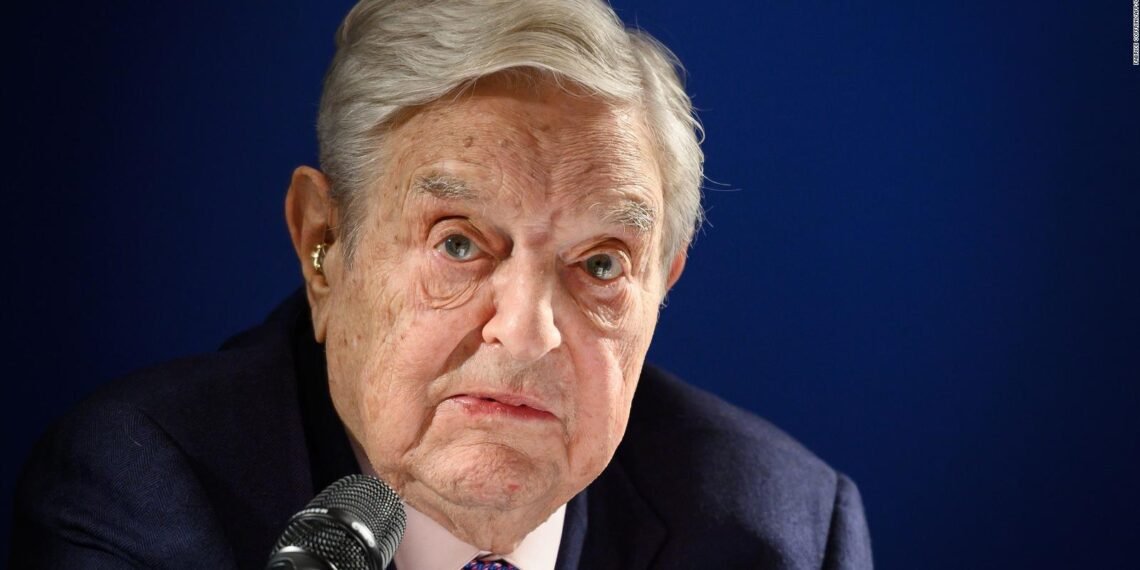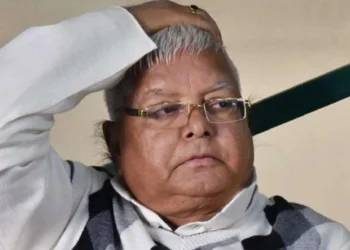George Soros, a billionaire investor and philanthropist, is renowned for his financial acumen and his commitment to promoting democratic ideals worldwide. As the founder of the Open Society Foundations, he has been a key advocate for human rights, freedom of expression, and economic reform. Yet, his influence has also made him a target of criticism, with detractors accusing him of wielding too much power in global politics and economics.
BY PC Bureau
George Soros, the Hungarian-born financier and philanthropist— the subject of an intense polarising debate in India– is a figure who continues to captivate and confound the world. His life story is a tapestry woven with threads of extraordinary success, controversial activism, and enduring scrutiny.
Born György Schwartz in Budapest, Hungary, in 1930, Soros lived through one of the most perilous periods of history during World War II. The son of Tivadar and Erzebet Schwartz, Soros and his family were Jewish and faced imminent danger during the Nazi occupation of Hungary in 1944, which resulted in the deportation and murder of hundreds of thousands of Hungarian Jews.
Adopting False Identities
To survive, the Schwartz family took extraordinary measures. Tivadar, who had experience in survival tactics as a prisoner of war in World War I, arranged for the family to adopt false Christian identities. He obtained forged papers and split the family members across different locations to reduce the risk of being discovered together. Young György was placed with a Hungarian government official who pretended to be his godfather. Under this new identity, György was introduced as the godson of his protector, allowing him to avoid scrutiny.
During the occupation, George Soros witnessed harrowing events. He was forced to accompany his protector on occasions when confiscated Jewish properties were inventoried. Soros later recalled these experiences with a mix of detachment and reflection, emphasizing the sheer will to survive under such extreme conditions. Meanwhile, his father, Tivadar, continued to use his resources and cunning to help other Jews escape by distributing forged documents and coordinating safe houses.
The Nazi occupation of Hungary ended in early 1945 when Soviet forces liberated Budapest. By then, much of Hungary’s Jewish population had been decimated. However, the Schwartz family survived intact, a testament to Tivadar’s resourcefulness and the family’s resilience.
In the years following the war, Hungary fell under Soviet influence, leading George Soros to leave the country in 1947. The survival of George Soros and his family in Nazi-occupied Hungary is a remarkable story of ingenuity, courage, and determination in the face of overwhelming danger. But his traumatic experience profoundly shaped his worldview, fostering a deep-seated commitment to social justice and a fervent belief in the power of open societies. After fleeing to England, he embarked on an academic journey, studying philosophy at the London School of Economics.
Soros’s foray into the world of finance yielded remarkable results. His unconventional investment strategies, particularly his audacious bet against the British pound in 1992, earned him billions and cemented his reputation as a financial maverick. This success provided the foundation for his philanthropic endeavors, enabling him to pursue his vision of a more just and equitable world.
The Open Society Vision:
Through the Open Society Foundations, a network of grantmaking organizations, Soros has championed causes ranging from human rights and democracy promotion to public health and education. His initiatives have supported countless projects worldwide, empowering marginalized communities and fostering civil society development. From combating HIV/AIDS in Africa to promoting media freedom in Eastern Europe, the Open Society Foundations have left an undeniable mark on global affairs.
A Magnate Under Fire:
However, Soros’s philanthropic activities have also drawn intense criticism. His support for political causes and organizations often deemed controversial by certain governments has fueled accusations of meddling in internal affairs and undermining national sovereignty. Critics argue that his funding of liberal causes, such as LGBTQ+ rights and reproductive rights, represents an attempt to impose Western values on other cultures.
The Conspiracy Theories:
Beyond these criticisms, Soros has become a central figure in a web of conspiracy theories. These theories, often fueled by antisemitic tropes, paint him as a malevolent force manipulating global events for his own gain. He has been falsely accused of orchestrating financial crises, funding extremist groups, and destabilizing governments. These accusations tap into deep-seated anxieties about a shadowy global elite controlling world affairs and exploit age-old prejudices against Jewish people.
The Enduring Legacy:
The contrasting perspectives on George Soros reflect the complexities of his legacy. His philanthropic endeavors have undeniably improved countless lives, while his critics raise valid concerns about his influence and methods. The conspiracy theories surrounding him are deeply troubling and must be unequivocally condemned.
Ultimately, assessing George Soros requires a nuanced understanding of his multifaceted persona. He is a complex figure whose life and work embody both the potential for extraordinary good and the inherent challenges of wielding immense power and influence. His story serves as a potent reminder of the importance of critical thinking, open dialogue, and a commitment to truth in an era of increasing polarization and misinformation.
Beyond the Controversy:
It is crucial to acknowledge that the controversy surrounding Soros extends beyond mere criticism. The conspiracy theories targeting him often cross the line into dangerous territory, fueled by prejudice and misinformation. These theories exploit deep-seated fears and anxieties, perpetuating harmful stereotypes and contributing to a climate of intolerance and discrimination.
The attack on Soros’s character and reputation goes beyond simple disagreement. It reflects a disturbing trend of demonizing individuals and organizations that challenge the status quo and advocate for progressive social change. These attacks are not just about silencing dissent; they are about undermining the very foundations of open societies that Soros has dedicated his life to defending.
Despite the controversy surrounding him, the legacy of George Soros compels us to engage in critical self-reflection. We must examine our own biases and assumptions, challenge the narratives we encounter, and strive for a more informed and nuanced understanding of the world around us. We must actively combat misinformation and disinformation, uphold the values of free speech and open inquiry, and defend the rights of individuals to express their views and pursue their convictions without fear of reprisal.
A Continuing Story:
The story of George Soros is far from over. His legacy will continue to be debated and reinterpreted for generations to come. But regardless of how history ultimately judges his contributions, his life serves as a powerful testament to the human capacity for resilience, the power of individual action, and the enduring importance of the fight for justice and equality.
Ultimately, assessing George Soros requires a nuanced understanding of his multifaceted persona. He is a complex figure whose life and work embody both the potential for extraordinary good and the inherent challenges of wielding immense power and influence. His story serves as a potent reminder of the importance of critical thinking, open dialogue, and a commitment to truth in an era of increasing polarization and misinformation.













